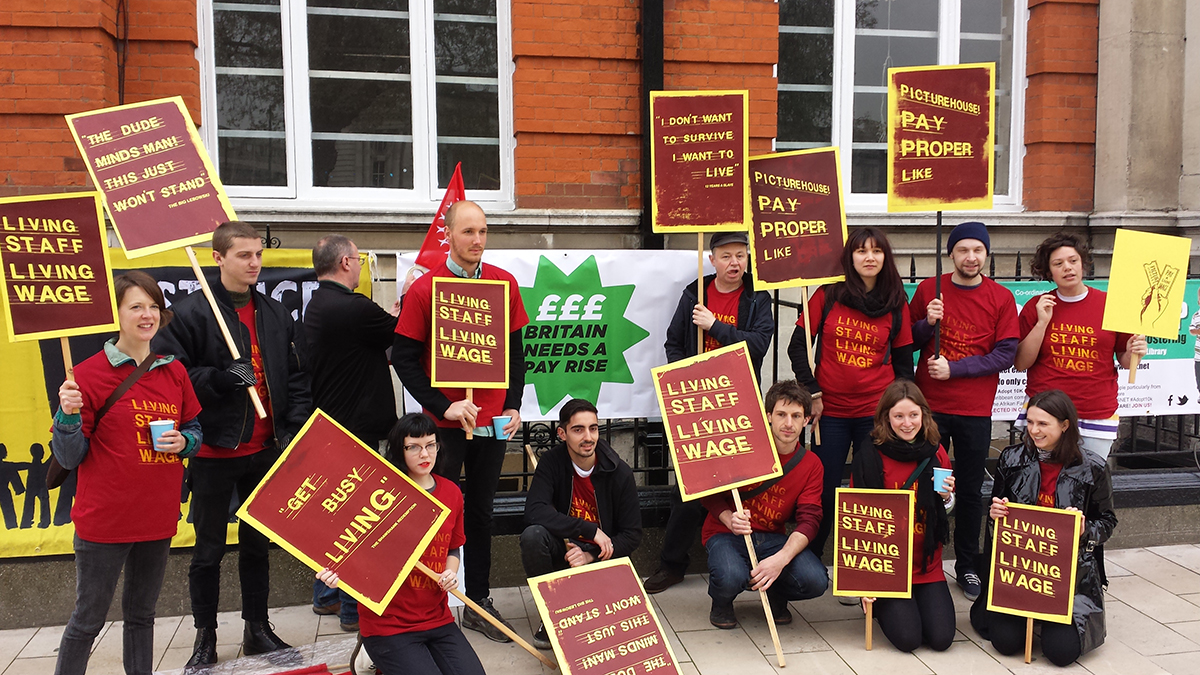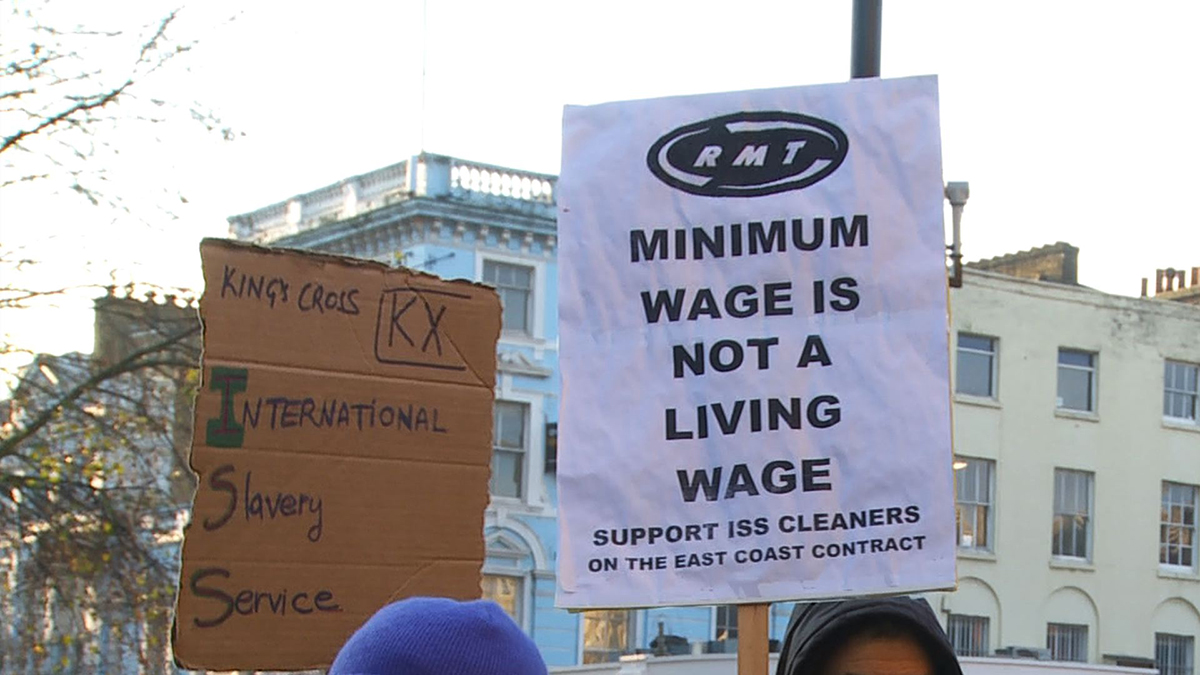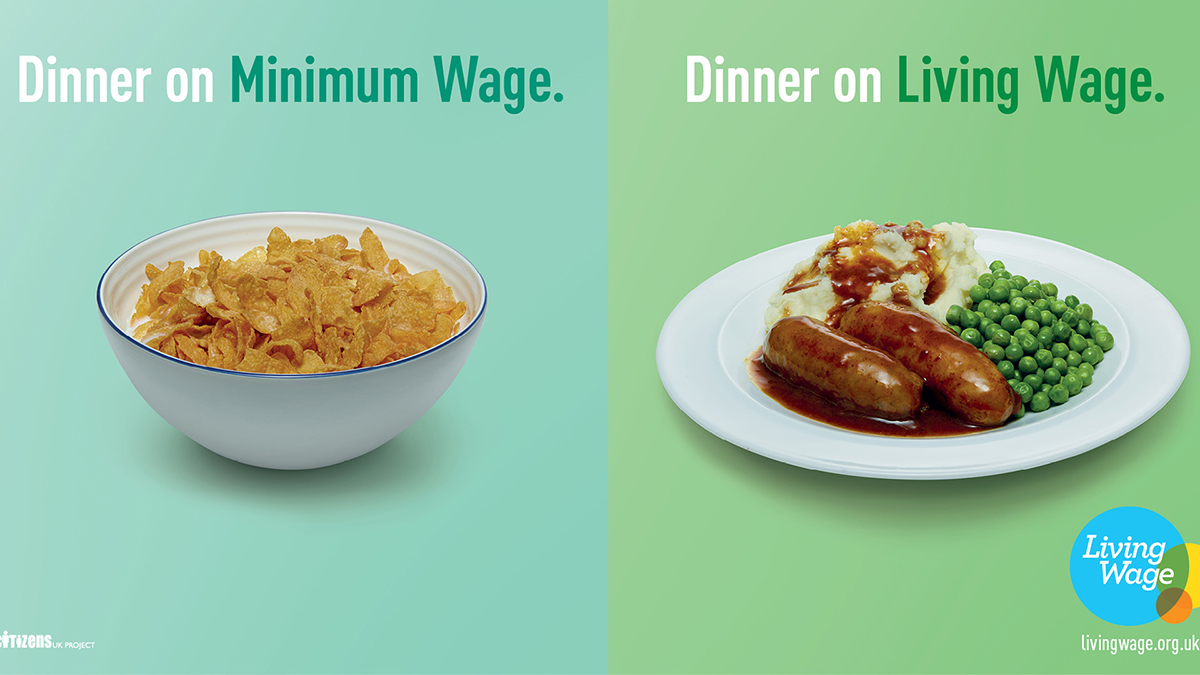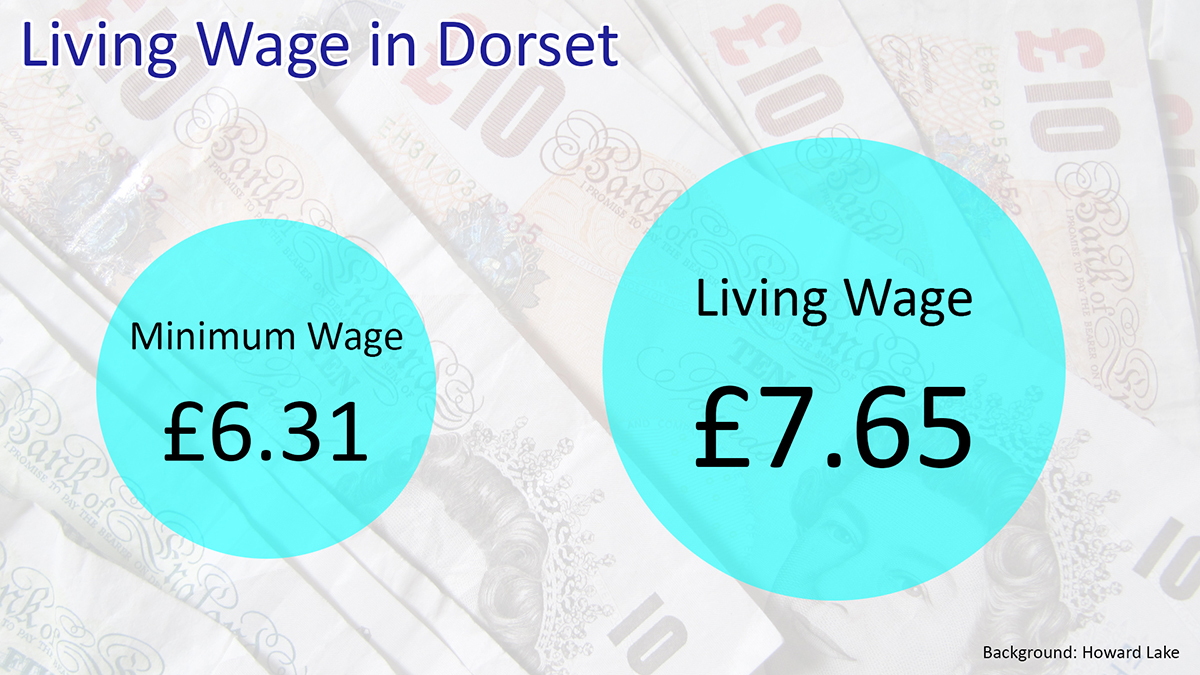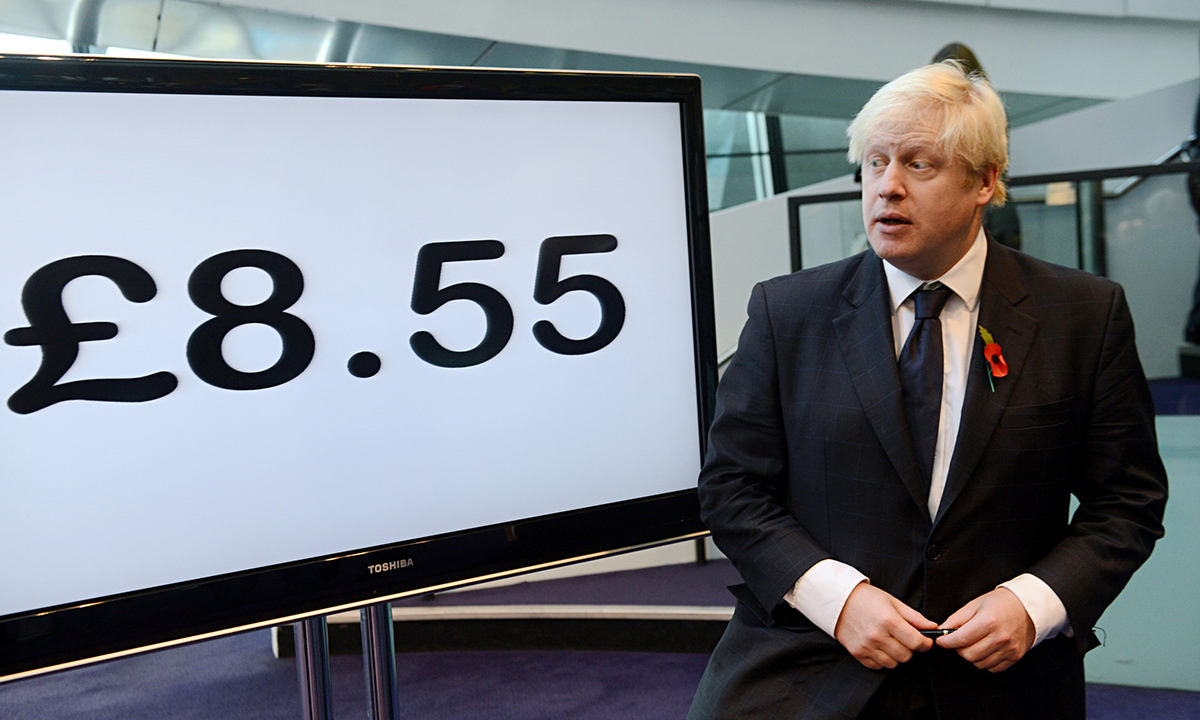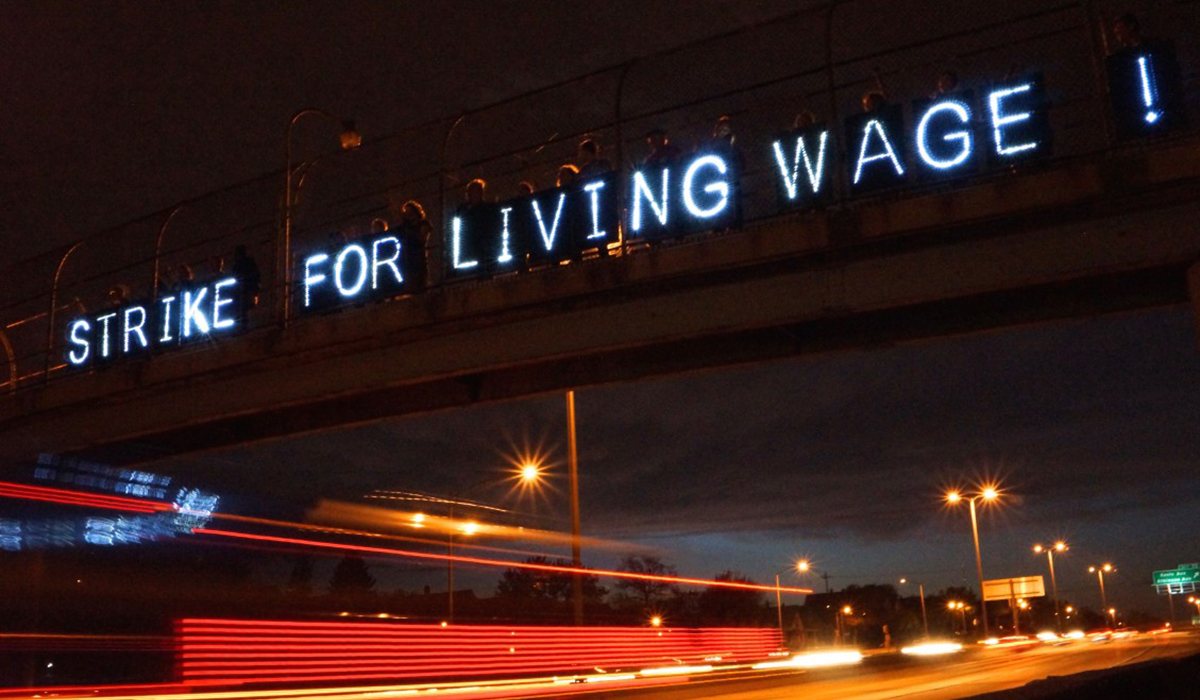
Unveiling more uncomfortable truths about poor pay conditions in the U.K., new research has revealed that despite some economic recovery, nearly 5.3 million people are paid less than a living wage.
Meanwhile, 22% of working people in Britain are now being forced to live on an income deemed officially “un-liveable” – a 21% rise from last year.
The research, carried out by the consultancy firm KPMG, shows that young, female and part-time workers especially are paid less than the hourly figure regarded as necessary to meet a basic standard of living.
According to the figures, 43% of part-time employees are paid less than the Living Wage, compared to 13% of full-time workers. Proving further inequality, the research unveiled that female workers are more likely than men to be paid an income that does not meet the Living Wage.
What is the U.K.’s Living Wage?
The modern UK Living Wage Campaign was launched in 2001 by members of London Citizens. The founders were predominantly parents in East London who, despite holding down two or more jobs that earned them the minimum wage, struggled to put food on the table and survive.
Following several successful Living Wage campaigns and growing employer interest, in 2005 Greater London established a Living Wage Unit designed to calculate the London Living Wage.
The campaign quickly turned into a national movement as further campaigns sprouted across the rest of the U.K., offering opportunities for employers to help rescue families living in poverty.
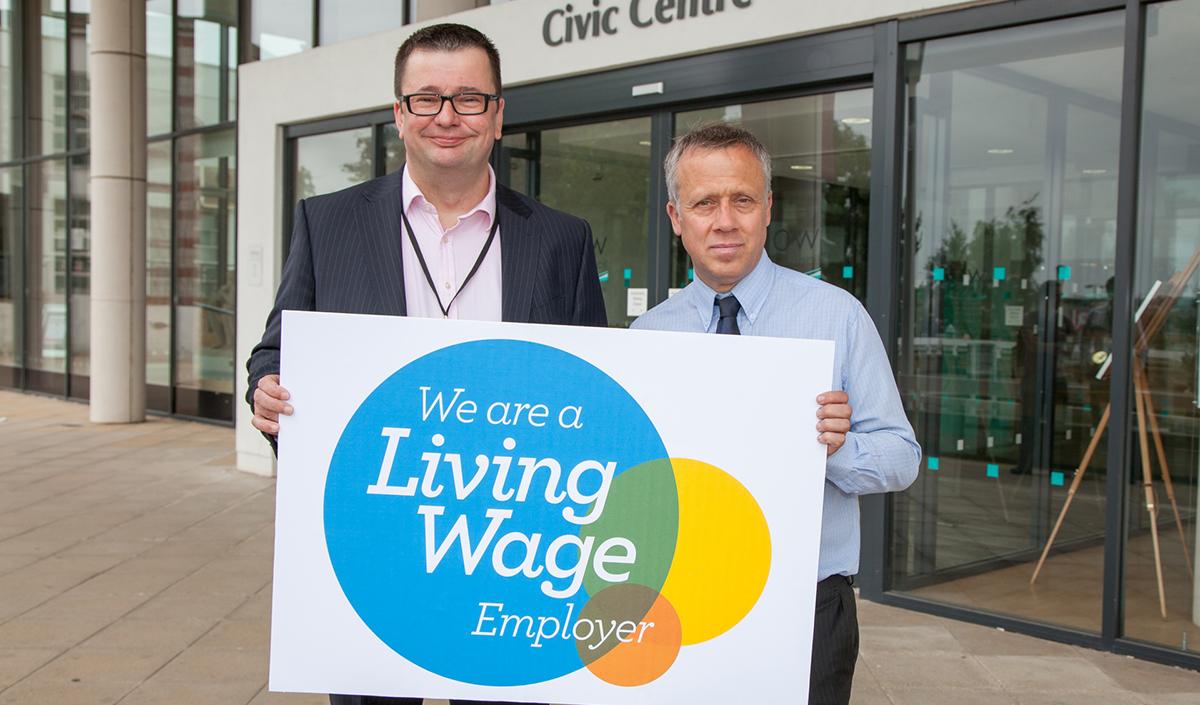
Living Wage rises by 2.6%
Last month, on Nov. 3, a new Living Wage rate was announced – a 2.6% rise on the rate set in 2013. The rate now stands at £9.15 per hour in London and £7.85 per hour in the rest of the country. This compares to the national minimum wage rate which currently stands at £6.50.
On hearing the announcement, Rhys Moore, Director of Living Wage Foundation, said: “As the recovery continues it’s vital that the proceeds of growth are properly shared. It’s not enough to simply hope for the best. It will take concerted action by employers, government and civil society to raise the wages of the 5 million workers who earn less than the Living Wage.”
Paying the Living Wage is now widely recognized as a sign of good employer practice. So with the U.K. now enjoying something of an economic recovery, one has to ask: why are more than one-fifth of U.K. employees still working for less than what’s officially regarded as "liveable"?
Alan Milburn, a Labour party politician and chair of the government’s Commission on Social Mobility, said both employers and the government need to be doing more to make the U.K. a living wage country.
“This research is further proof that more workers are getting stuck in low paid work with little opportunity for progression,” Milburn told The Guardian.

Certain sectors reluctant to embrace the Living Wage
Despite the number of businesses adopting the Living Wage and the campaign's gathering momentum, certain types of industries have stubbornly refused to embrace it. According to research by Cambridge Policy Consultants, sectors in which low pay is a fundamental component of the business – such as social care and retail – remain reluctant to adopt the Living Wage.
These industries are less reliant on employees to increase productivity and are therefore less inclined to pay them more, the research found. As we reported in March, worker anger over the Living Wage was brewing in schools in the Derbyshire district of the U.K. Tensions mounted when midday lunch supervisors working at local primary schools discovered they weren't entitled to receive the Living Wage that people working in similar roles for the local authority were receiving.
How is it fair that this notoriously low-paid but vital component of the school community isn't earning the Living Wage?
Making a mockery of economic recovery
With close to 5.3 million Britons now forced to live on wages that fall below the basic standard of living, the KPMG study further shows that inequality is rising in the U.K., making a mockery of the so-called economic "recovery."
In fact, according to a recent report by Credit Suisse, Britain is the only G7 country that's seen inequality increase since the beginning of the 21st century. And the proof of the U.K.’s burgeoning pay inequality and rising poverty speaks for itself.
As Occupy.com reported in November, amidst harsh welfare cuts the Red Cross has been forced to hand out food aid in the U.K. for the first time since the Second World War.
And children are at the heart of the suffering. A new report by the U.K. charity Shelter shows that more than 90,000 children in the U.K. are presently living in temporary accommodation. The statistics show that as many as three children in every school in Britain are currently homeless.
Blighting the Lives of Families
In the wake of the Living Wage study, Francis O’Grady of the Trade Union Congress (TUC) warned that low levels of pay are “blighting the lives of families” in Britain.
As the Green Party demands a minimum wage of £10 per hour, the Labour Party has promised tax rebates to companies that sign up for the Living Wage – leveraging the issue in the hopes of gaining power in the May 2015 General Election.
Meanwhile, a fifth of workers in Britain are working for pay that is less than what's officially deemed enough to meet basic living standards. As Mrs. Roberts, a midday assistant at a school in Derbyshire, said: “What’s the point in having a Living Wage if not everyone, regardless of age, gender, or whether they work full-time or part-time, can reap its benefits?”
3 WAYS TO SHOW YOUR SUPPORT
- Log in to post comments

